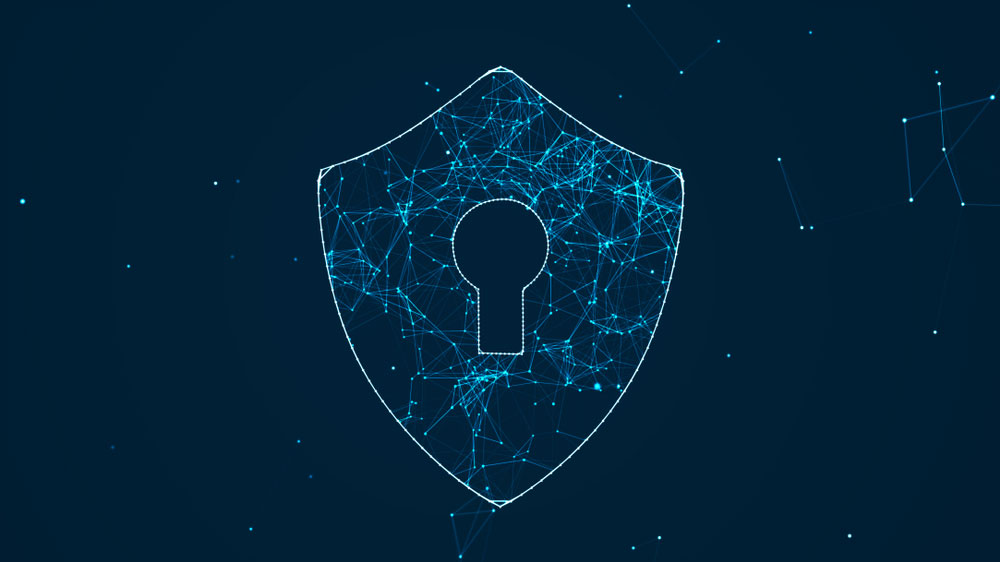| Expert trainer | Categories | Contact US | Email Us |
|---|---|---|---|
| DR.BURZIN BHARUCHA | IT CERTIFICATION | 095010 22942 | INFO@BIACAMPUS.IN |
CCISO
- Home / EC Council Programs /
- CCISO

COURSE DESCRIPTION
WHY TO OPT FOR CERTIFIED CHIEF INFORMATION SECURITY OFFICER (CCISO) ?
Get the optimum comprehension and hands-on-experience over the contemporary and executive security management competencies that are considered supreme in the job market today and are provided by EC-Council’s Certified CISO (CCISO) Program that is indispensable for information security professionals for the their bright future in the IT World. The program enriches your experience in analysis, auditing, configuration, identity, mitigation and monitoring as British International Academy in Kuwait is making sure to provide you with this renowned certified training program to advance your career in this highly technical era.
How will this training will help you ?
Improved rate of return through upgraded security. Lowered aggregate cost of proprietorship because of a predictable utilization of security strategies crosswise over gadgets, and coordinating those approaches to managerial work processes . Increased IT efficiency in view of computerization of mass setups of security approaches. More straightforward, exquisite framework plans that empower better administration. Better cost control because of diminished interruptions because of less client mistake.
Prerequisites
There are no Prerequisites for this course.
Training
This option is open to anyone interested in taking CCISO training. Official CCISO . Once training has been completed, applicants who would like to sit for the CCISO Exam will be required to fill out and return the Exam Eligibility Application proving that in addition to the the training, they also have 5 years of IS management experience in 3 of the 5 CCISO Domains. Once that application has been approved, instructions for purchasing a Pearson VUE voucher will be issued. Applicants who do not meet these requirements have the option of sitting for the EC-Council Information Security Manager (E|ISM) exam as part of the Associate CCISO Program.
Skills
In order to qualify to sit for the CCISO Exam without taking any training, candidates must have five years of experience in each of the 5 CCISO domains verified via the Exam Eligibility Application. To sit for the exam after taking training, candidates must have five years of experience in three of the five CCISO Domains verified via the Exam Eligibility Application.
Expert Trainer:Dr.Burzin Bharucha
- ITIL V3.0 Foundation ITSM – Support / Delivery
- Information Systems Security Prof (CISSP)
- Information Systems Auditor (CISA)
- CISCO Networking Professional (CCNP)
- Lead Auditor of QMS & ISMS
- Lean Six Sigma Black Belt Professional
- CISCO Networking Associate (Security+)
- CISCO Networking Administration (CCNA)
Contact Us
If you require any further information feel Explore Course to contact Us.
095010 22942
info@biacampus.in
Maharaja Ranjit Singh Nagar, Joshi Colony, Amritsar, Punjab 143001
COURSE FEATURES
- Lectures: 5
- Duration: 8 hours
- Language: English
- Assessments: Yes
CERTIFICATION STEPS
- Exam Title: EC-COUNCIL Training
- Exam Code:
- No of Questions: 150
- Duration: 8 Hrs
- Required Passing Score: 72%
- Test Format: Multiple Choice
SCHEDULE TRAINING
Domain 1
Governance
Qualifying areas under Domain 1 include (but are not limited to) the following:
- Define, implement, manage and maintain an information security governance program that includes leadership, organizational structures and processes.
- Align information security governance framework with organizational goals and governance, i.e., leadership style, philosophy, values, standards and policies.
- Establish information security management structure.
- Establish a framework for information security governance monitoring (considering cost/benefits analyses of controls and ROI).
- Understand standards, procedures, directives, policies, regulations, and legal issues that affect the information security program.
- Understand the enterprise information security compliance program and manage the compliance team.
- Analyze all the external laws, regulations, standards, and best practices applicable to the organization.
- Understand the various provisions of the laws that affect the organizational security such as Gramm-Leach-Bliley Act, Family Educational Rights and Privacy Act, Health Insurance Portability and Accountability Act [HIPAA], Federal Information Security.
- Management Act [FISMA], Clinger-Cohen Act, Privacy Act, Sarbanes-Oxley, etc.
- Be familiar with the different standards such as ISO 27000 series, Federal Information Processing Standards [FIPS].
- Understand the federal and organization specific published documents to manage operations in a computing environment.
- Assess the major enterprise risk factors for compliance.
- Coordinate the application of information security strategies, plans, policies, and procedures to reduce regulatory risk.
- Understand the importance of regulatory information security organizations and appropriate industry groups, forums, and stakeholders.
- Understand the information security changes, trends, and best practices.
- Manage enterprise compliance program controls.
- Understand the information security compliance process and procedures.
- Compile, analyze, and report compliance programs.
- Understand the compliance auditing and certification programs.
- Follow organizational ethics.
Domain 2
Security Risk Management
Qualifying areas under Domain 2 include (but are not limited to) the following:
Information Security Management Controls:
- Identify the is operational process and objectives as well as risk tolerance level.
- Design information systems controls in alignment with the operational needs and goals and conduct testing prior to implementation to ensure effectiveness and efficiency.
- Identify and select the resources required to effectively implement and maintain information systems controls. Such resources can include human capital, information, infrastructure, and architecture (e.g., platforms, operating systems, networks, databases, applications).
- Supervise the information systems control process to ensure timely implementation in accordance with the outlined budget and scope, and communicate progress to stakeholders.
- Design and implement information systems controls to mitigate risk. Monitor and document the information systems control performance in meeting organizational objectives by identifying and measuring metrics and key performance indicators (KPIs).
- Design and conduct testing of information security controls to ensure effectiveness, discover deficiencies and ensure alignment with organization is policies, standards and procedures.
- Design and implement processes to appropriately remediate deficiencies and evaluate problem management practices to ensure that errors are recorded, analyzed and resolved in a timely manner.
- Understand the various provisions of the laws that affect the organizational security such as Gramm-Leach-Bliley Act, Family Educational Rights and Privacy Act, Health Insurance Portability and Accountability Act [HIPAA], Federal Information Security.
- Assess and implement tools and techniques to automate information systems control processes.
- Produce information systems control status reports to ensure that the processes for information systems operations, maintenance and support meet the organization is strategies and objectives, and share with relevant stakeholders to support executive decision-making.
Auditing Management
- Understand the IT audit process and be familiar with IT audit standards.
- Apply information systems audit principles, skills and techniques in reviewing and testing information systems technology and applications to design and implement a thorough risk-based IT audit strategy.
- Execute the audit process in accordance with established standards and interpret results against defined criteria to ensure that the information systems are protected, controlled and effective in supporting organization is objectives.
- Effectively evaluate audit results, weighing the relevancy, accuracy, and perspective of conclusions against the accumulated audit evidence.
- Assess the exposures resulting from ineffective or missing control practices and formulate a practical and cost-effective plan to improve those areas.
- Develop an IT audit documentation process and share reports with relevant stakeholders as the basis for decision-making.
- Ensure that the necessary changes based on the audit findings are effectively implemented in a timely manner.
Domain 3
Security Program Managament & Operations:
- For each information systems project develop a clear project scope statement in alignment with organizational objectives.
- Define activities needed to successfully execute the information systems program, estimate activity duration, and develop a schedule and staffing plan.
- Develop, manage and monitor the information systems program budget, estimate and control costs of individual projects.
- Identify, negotiate, acquire and manage the resources needed for successful design and implementation of the information systems program (e.g., people, infrastructure, and architecture).
- Acquire, develop and manage information security project team.
- Direct information security personnel and establish communications, and team activities, between the information systems team and other security-related personnel (e.g., technical support, incident management, security engineering).
- Resolve personnel and teamwork issues within time, cost, and quality constraints
- Participate with vendors and stakeholders to review/assess recommended solutions; identify incompatibilities, challenges, or issues with proposed solutions..
- Evaluate the project management practices and controls to determine whether business requirements are achieved in a cost-effective manner while managing risks to the organization.
- Develop a plan to continuously measure the effectiveness of the information systems projects to ensure optimal system performance.
Domain 4
Information Security Core Cocept: Access Control
- Identify the criteria for mandatory and discretionary access control, understand the different factors that help in implementation of access controls and design an access control plan.
- Implement and manage an access control plan in alignment with the basic principles that govern the access control systems such as need-to-know.
- Identify different access control systems such as ID cards and biometrics.
- Develop procedures to ensure system users are aware of their IA responsibilities before granting access to the information systems.
Social Engineering, Phishing Attacks, Identity Theft
- Understand various social engineering concepts and their role in insider attacks and develop best practices to counter social engineering attacks.
- Design a response plan to identity theft incidences.
- Identify and design a plan to overcome phishing attacks.
Domain 5
Qualifying areas under Domain 1 include (but are not limited to) the following: Strategic Planning
- Design, develop and maintain enterprise information security architecture (EISA) by aligning business processes, IT software and hardware, local and wide area networks, people, operations, and projects with the organization is overall security strategy.
- Perform external analysis of the organization (e.g., analysis of customers, competitors, markets and industry environment) and internal analysis (risk management, organizational capabilities, performance measurement etc.) and utilize them to align information security program with organization is objectives.
- Define a forward-looking, visionary and innovative strategic plan for the role of the information security program with clear goals, objectives and targets that support the operational needs of the organization.
- Assess and adjust IT investments to ensure they are on track to support organization is strategic objectives.
Monitor and update activities to ensure accountability and progress.Finance
- Analyze, forecast and develop the operational budget of the IT department..
- Acquire and manage the necessary resources for implementation and management of information security plan.
- Monitor and oversee cost management of information security projects, return on investment (ROI) of key purchases related to IT infrastructure and security and ensure alignment with the strategic plan.
- Understand the acquisition life cycle and determine the importance of procurement by performing Business Impact Analysis.
- Identify different procurement strategies and understand the importance of cost-benefit analysis during procurement of an information system.
- Develop contract administration policies that direct the evaluation and acceptance of delivered IT security products and services under a contract, as well as the security evaluation of IT and software being procured.
- Develop measures and reporting standards to measure and report on key objectives in procurements aligned with IT security policies and procedures. Understand the IA security requirements to be included in statements of work and other appropriate procurement documents.
Contact Us
If you require any further information feel free to contact Us.
095010 22942
Maharaja Ranjit Singh Nagar, Joshi Colony, Amritsar, Punjab 143001
YOU MAY LIKE

Android App Development

Information Security

